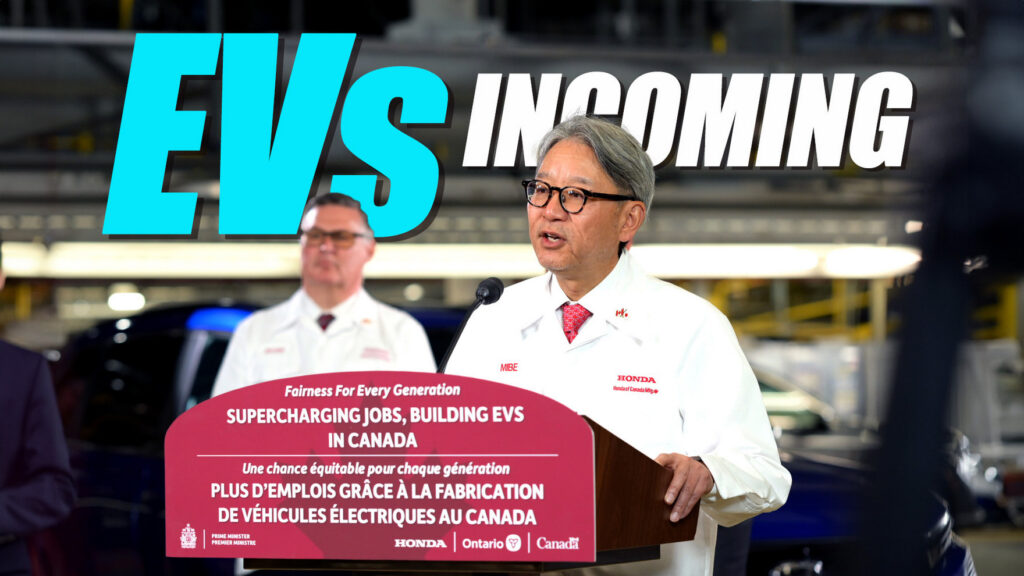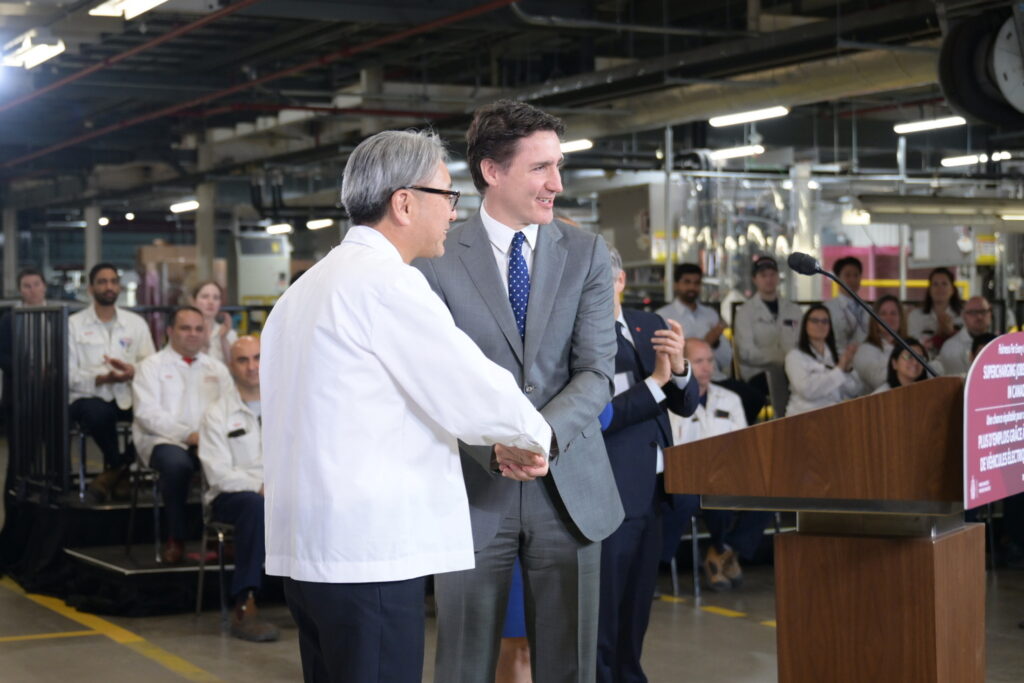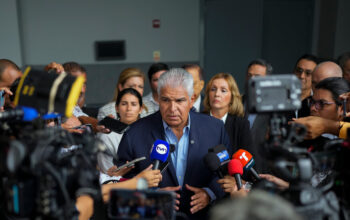Honda is establishing Canada’s first comprehensive EV supply chain
1 hour ago
 –>
–> 
–>
- Honda is making the largest ever investment in Canada’s auto industry.
- Honda will spend $11 billion to establish a comprehensive EV supply chain in the province of Ontario.
- The automaker plans to start building EVs at the plant in 2028.
Honda is going north of the border for the second stage in its North American EV expansion. The Japanese automaker announced on Thursday that it will spend CA$15 billion (around US$11 billion at current exchange rates) to produce electric vehicles in the province of Ontario.
Honda will build an EV plant and a standalone battery plant near its existing manufacturing facility in Alliston, Ontario, about 62 miles (100 km) north of Toronto. The latter plant will have an annual capacity of 36 GWh, and the assembly plant will be able to pump out 240,000 EVs per year, starting in 2028.
Read: Honda To Cut Dealer Margins By 44% In Canada To Fund EV Shift, Says Report
In addition, the company also expects to build a cathode active material and precursor processing plant and a separator plant nearby. These facilities will be established with the help of joint ventures partners POSCO Future M Co., Ltd. and Asahi Kasei. Honda is still in the process of negotiating with its collaborators, and will announce further details relating to these facilities, such as their locations, in the coming six months.
Canadian Prime Minister Justin Trudeau called Honda’s move the “largest auto investment in Canada’s history,” reports the CBC. The federal government said that the deal will lead to “Canada’s first comprehensive electric vehicle supply chain.”

Honda’s Canadian EV plants will be supported by its Ohio EV Hub, which will start producing EVs in 2025. There, the automaker invested US$700 million to retool its existing plant, and expects to spend another US$4.4 billion to build a battery plant nearby.
Both investments are part of Honda’s long-term plans. The automaker aims for electric vehicles and hydrogen fuel cell electric vehicles to account for 100 percent of its sales by 2040. By 2050, it aims to be carbon-neutral across all of its business activities.
“Following the initiative to establish our EV production system capability in the U.S., we will now begin formal discussions toward the establishment of a comprehensive EV value chain here in Canada, with the support of the governments of Canada and Ontario,” said Toshihiro Mibe, Honda’s CEO. “We will strengthen our EV supply system and capability with an eye toward a future increase in EV demand in North America.”


